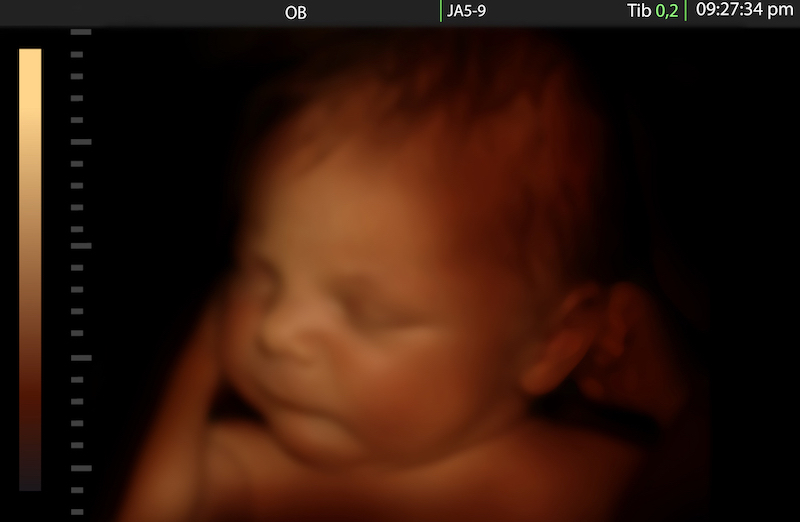Abortion, American Politics
Abortion activist claims that not aborting disabled babies is…cruel
With the Dobbs decision moving abortion fights to the state level, we are seeing the battle lines redrawn. After victories in Montana, Kentucky, and Michigan, abortion activists are working hard to cast their gruesome agenda as common sense and compassionate. For decades, the pro-life movement and abortion activists have battled for the hearts and minds of Americans, with little change.
Most Americans are ambivalent about early-term abortion; roughly half identify as pro-life; almost none see abortion as a moral good, despite failed attempts at #shoutyourabortion campaigns seeking to normalize the procedure. But it is indisputable that an overwhelming majority of Americans – over 70% – believe abortion in the third trimester should be illegal.
To counter this, abortion activists have increasingly begun to tell heartrending stories of wanted children aborted for eugenic reasons. Some of these children had disabilities; other had life-limiting circumstances. In each case, abortion is presented as an awful but fundamentally compassionate choice. It is also presented as the only compassionate choice, for the children as much as the parents. I refer to this trend as “empathetic eugenics.” In these stories, killing these children in the womb is presented as necessary; preventing these abortions as cruel.
Writer and abortion activist Jessica Valenti recently described this strategy in detail. Valenti was the co-founder of the blog Feministing and the author of books such as Full Frontal Feminism, The Purity Myth, and – tellingly – Why Have Kids? She now runs a Substack titled “Abortion, Every Day.” In a thread on X (formerly Twitter), Valenti laid out what is rapidly becoming the narrative pushed by abortion activists as they attempt to persuade voters to endorse abortion until birth (which is currently on the ballot in Ohio):
Imagine you’re 20 wks pregnant when your fetus is diagnosed with a lethal condition. But no one tells you that—at least, not explicitly. Your doctor is mandated by law to tell you the condition is “potentially life-limiting,” and that your non-viable pregnancy is “pre-viable.” Before the diagnosis, you were even discouraged from getting prenatal testing at all, and your doctor was required to read from a script exaggerating the chances for false positives.
Still, you’re able to read between the lines; you understand you will never be bringing a baby home. So you tell your doctor that you’d like an abortion, which is legal in cases of fatal abnormalities. Your state has a mandatory waiting period—even in cases of doomed pregnancies—because medical “experts” convinced legislators that women who get devastating news don’t have executive decision-making abilities for at least 72 hours. If you still want an abortion you’ll have to meet with a “prenatal diagnosis counselor” (not a mental health expert) trained to say that having an abortion is far more traumatic than carrying to term.
Even if that means having a c-section or an hours-long vaginal delivery. As you grieve for the pregnancy that you planned for, this volunteer will tell you—without proof or expertise—that your baby could end up being fine. And that even if they’re not, watching your child die in your arms will bring you “closure.” Finally, the hospital informs you that if you go through with the birth, they’ll provide you with therapy, financial help and remembrances like ultrasound pictures and a teddy bear with your baby’s name embroidered on it. You’ll get no such mementos if you end the pregnancy.
If you want to get an abortion, you’re on your own. In fact, you’ll have to sign a form saying that you understand there’s a chance your baby could survive but you’re having an abortion anyway. This nightmare scenario—this cruelty and manipulation directed at people during the most vulnerable moment of their lives—is the anti-abortion movement’s next big project.
Valenti does not actually describe what she is defending here – late-term abortion, perpetrated against a child because he or she has a disability or life-limiting condition. Late-term abortion is incredibly gruesome – in fact, The Cut published an article a few years ago titled “The Mom Who Had An Abortion At Seven Months Pregnant,” about a mother who chose abortion upon finding out that her son had microcephaly. She describes her baby’s last kick within her as he died, the abortionist sweating as he tried to crush the little boy’s skull; and wrapping his dismembered remains in a prayer shawl for burial. She admits the abortion was horrifying. She also believed it was necessary. Her little boy did not get to die in her arms. He was victim of empathetic eugenics. This is the sort of abortion Valenti is defending.
Of course, this is what abortion activists do: they insist that the child targeted by the abortionist is not the victim; they erase the main character in this moral drama as if he or she did not exist.
READ THE REST OF THIS COLUMN HERE









False positives in prenatal testing are incredibly common, as reported by the New York Times. The rarer the disease, the more likely it is that a positive test is wrong.
https://www.nytimes.com/2022/01/01/upshot/pregnancy-birth-genetic-testing.html
Babies have been aborted (usually late in pregnancy) because of these false diagnoses. They are only collateral damage to someone like Jessica Valenti (who has aborted two babies). After all, the woman can always just try again.
I knew she had one. Didn’t know she had two.